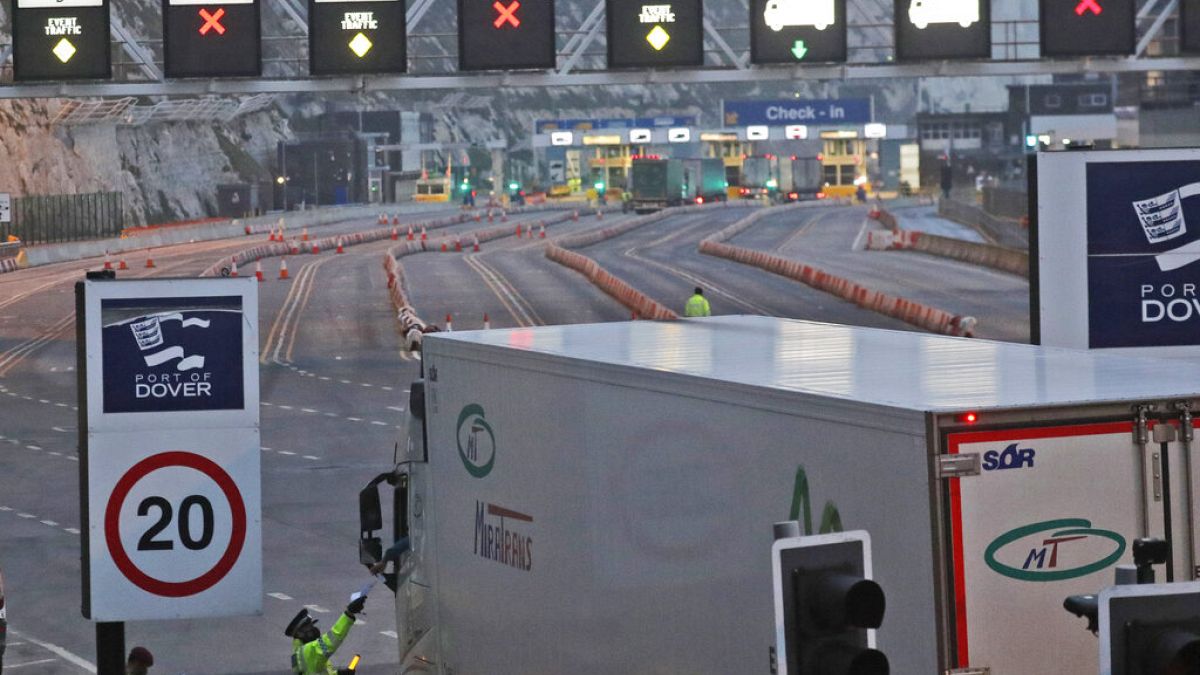The UK has postponed import checks on EU goods again, citing the inflationary burden on businesses. The EU imposed checks on UK exports in January 2021.
The UK has delayed imposing post-Brexit border checks on imports from the EU, saying it did not want to worsen inflationary pressures.
This is the fourth time the UK has postponed implementing the checks, as it is required to do under the terms of its divorce settlement with the 27-nation trading bloc.
The UK government said on Thursday that full checks on goods coming from the EU would be pushed back until the end of 2023, as it did not want to add to the cost of living crisis gripping the UK.
It cited the Russian invasion of Ukraine, spiralling energy costs and fragile global supply chains as the reasons behind delaying the measures, which were supposed to take effect on 1 July.
Following the UK's departure from the EU, imports from the bloc are supposed to be subject to the same checks as international goods. While some of these controls have been put in place, many others have not.
The EU immediately implemented border controls for UK exports in January 2021 after the Brexit transition period expired. The repeated delays to UK import checks have led to complaints from British producers that EU exporters have a competitive advantage.
Physical checks on fresh food and a ban on EU sausages and chilled meats "will no longer be introduced this year," said the UK government.
Today's announcement comes off the back of a study by the London School of Economics that found Brexit had majorly disrupted UK-EU trade, hurting smaller UK exporters and significantly reducing EU exports to the country.
"It's vital that we have the right import controls regime in place, so we'll now be working with industry to review these remaining controls so that they best suit the UK's own interests," said Jacob Rees-Mogg, Britain's minister for Brexit opportunities.
The UK -- like other countries around the globe -- has experienced months of supply shortages.
Experts cite a perfect storm of factors, including Brexit and Covid, worker storage and runaway inflation as hampering the UK's economic prospects.
Inflation in the UK hit a 30-year high of 7.0% in March and is set to climb higher in the coming months, leaving households facing the biggest loss of income since at least the 1950s, according to the government's budget forecasters.
Prime Minister Boris Johnson’s spokesman, Max Blain, hinted that the UK was “working on a new model” that would use the latest data and technology to ease burdens on businesses.
The new plan will be published later this year before coming into force at the end of 2023.
The EU immediately implemented border controls for UK exports in January 2021 after the Brexit transition period expired. The repeated delays to UK import checks have led to complaints from British producers that EU exporters have a competitive advantage.
Both the UK and EU are currently at loggerheads on how to resolve trading disputes that currently exist between the two.
The UK’s Conservative government has accused the EU of being needlessly “purist” in its approach to rules for Northern Ireland, while the EU says the UK is failing to honour a legally binding deal it signed up for.
In the past, the UK has threatened to act unilaterally and suspend parts of the divorce deal if progress is not made, although such action has been condemned as a potential violation of international law.
